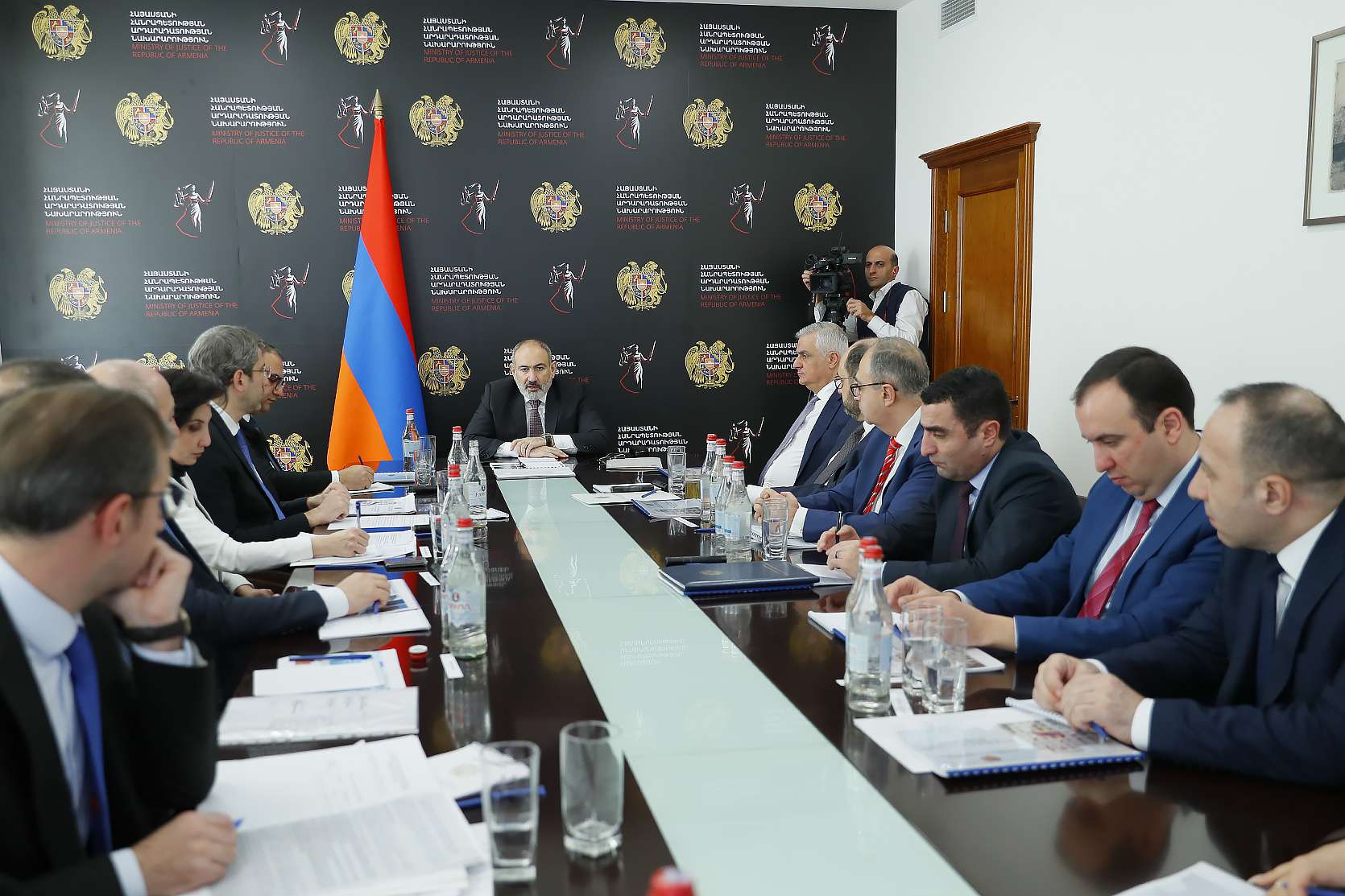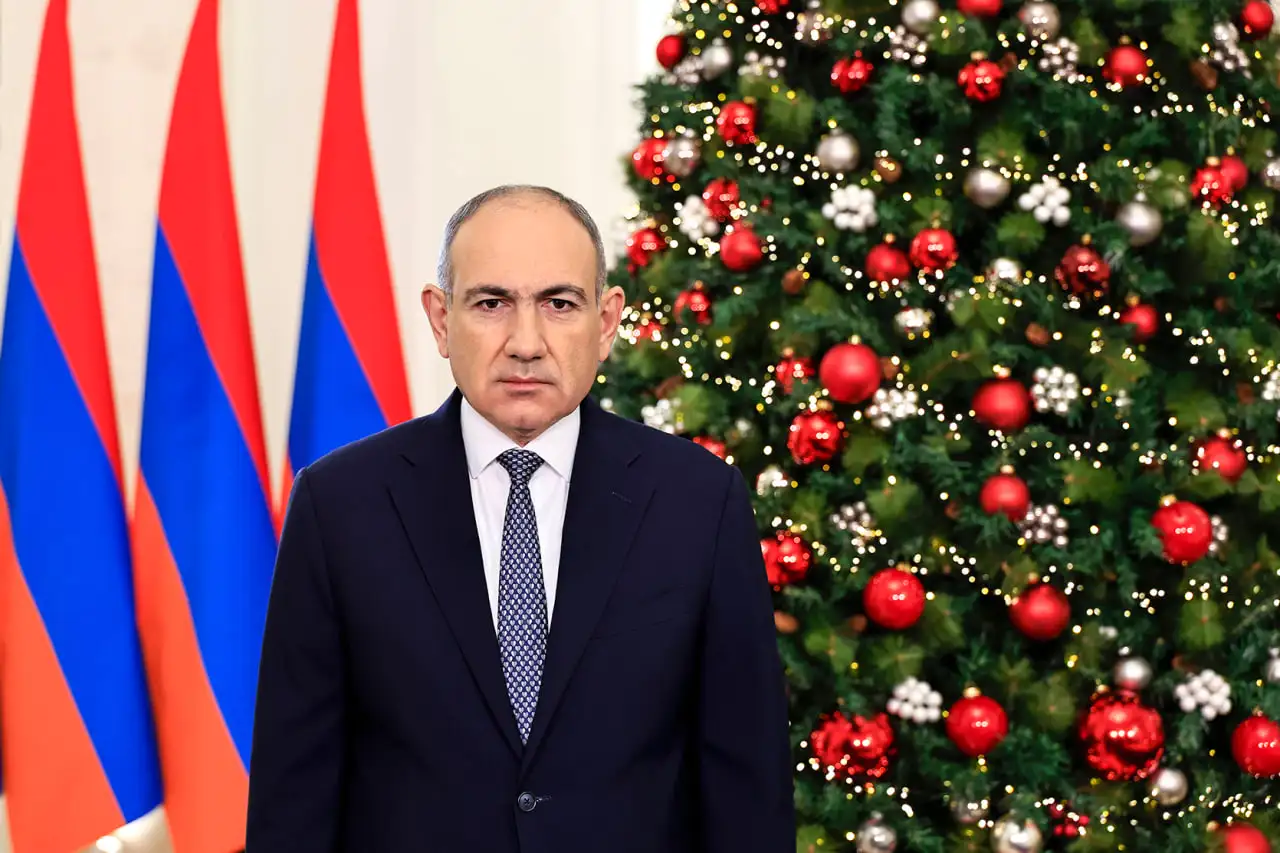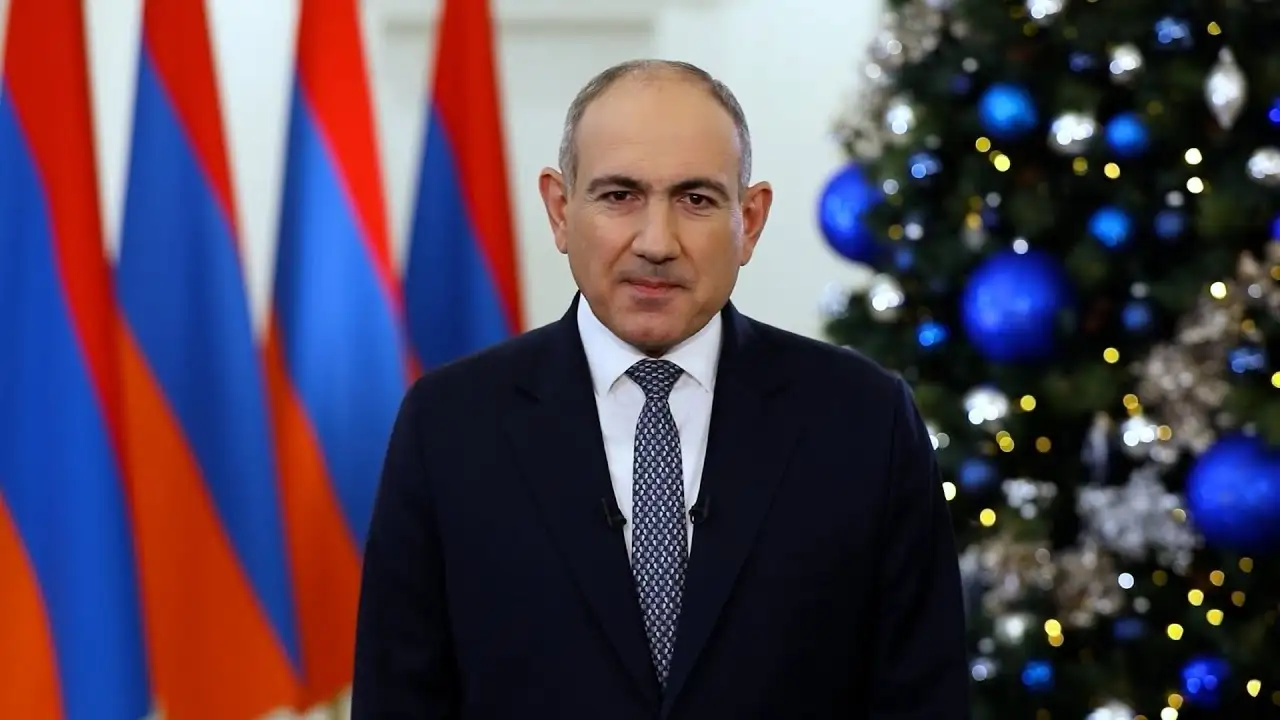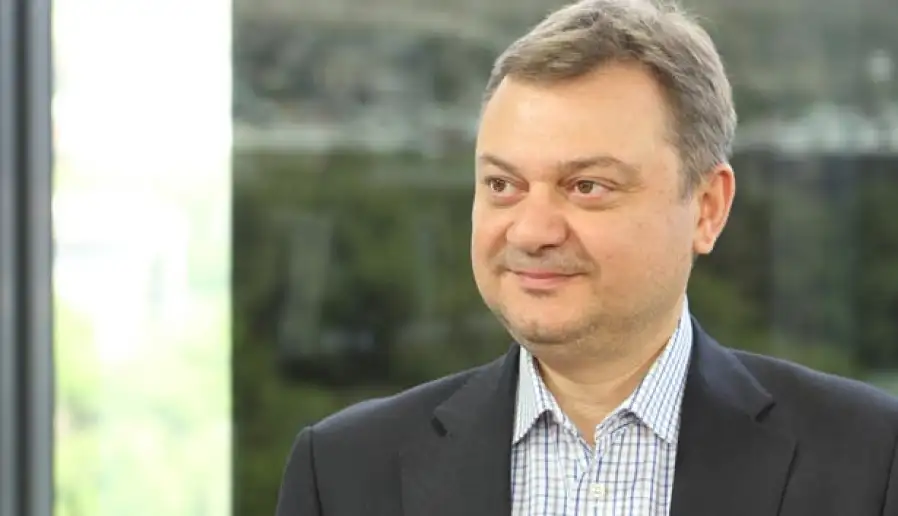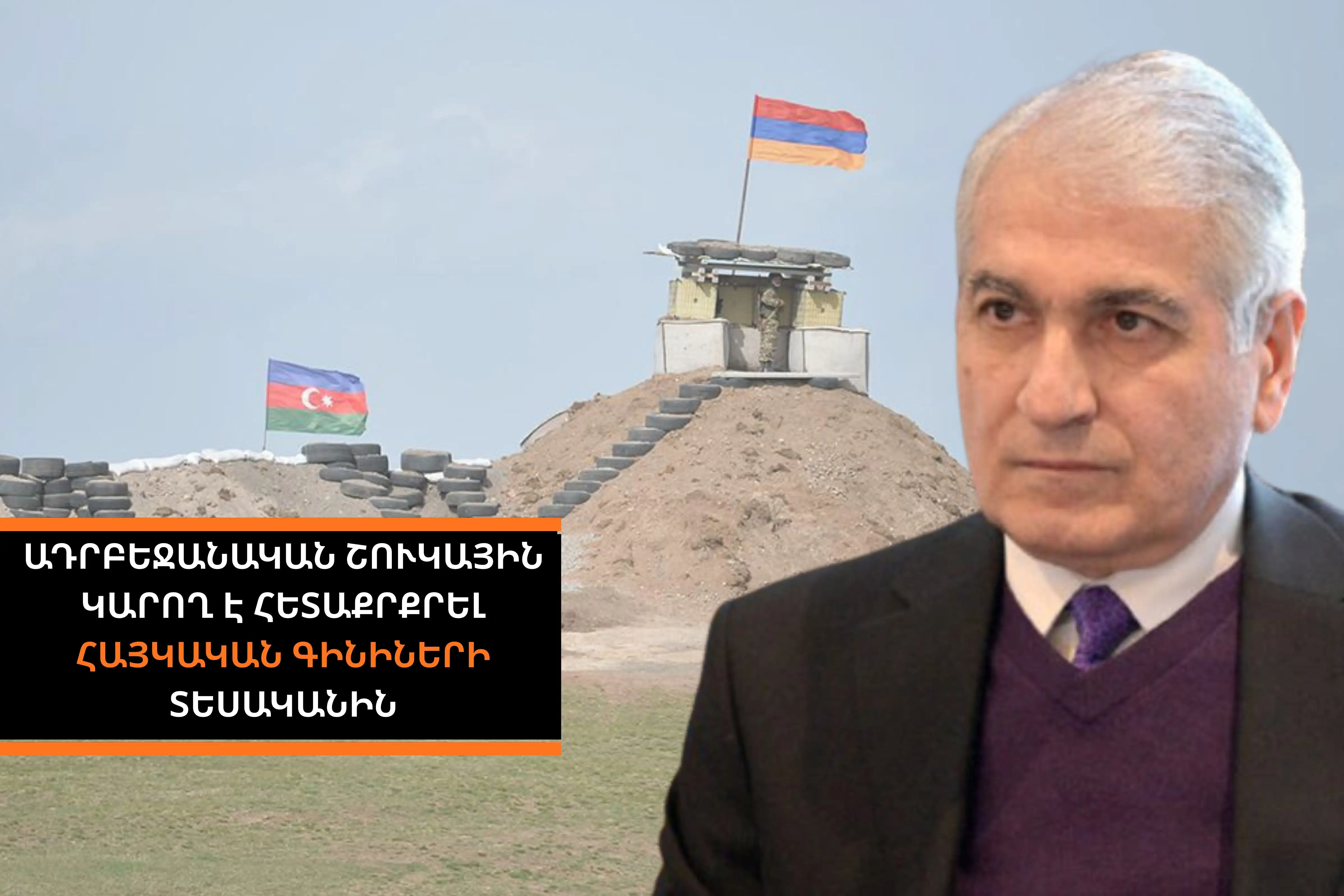Prime Minister Nikol Pashinyan visited the Ministry of Justice on January 18 to discuss the department's 2023 activity report.
Before the discussion, the Prime Minister put two emphases. "First, the Ministry of Justice is involved in the work of the demarcation commission. I want to emphasize the strategic importance of the demarcation process because there are severe political, socio-psychological, and security issues here.
Understandably and obviously, we live in a world that is changing at a very high speed and in unpredictable directions, and it is essential to finally answer the following question: what is our vision and formula for ensuring the security of the Republic of Armenia? We have had many discussions on this issue in various formats, and legitimacy is the cornerstone of ensuring the security of the Republic of Armenia. What does this mean? This means that we have to formulate the problem very clearly; of course, the problem or the formulation is pronounced, but we should not hesitate to re-record this, and the record is as follows: we set a problem for the Republic of Armenia to establish and develop in its internationally recognized territory as a legal, democratic state. This should be the strategic perception of the future of our country: the Republic of Armenia as a sovereign, legal, democratic, and social state. Of course, this list can be continued, but I am talking about the primary directions now.
A question arises: what is the territory of the Republic of Armenia? I want to emphasize again that we don't have to find an answer to this question, but we have to take the existing answer off the shelves and put it on the table. It will be difficult for me to say how many years, but since a long time ago, the size of the sovereign territory of the Republic of Armenia has been recorded in the Republic of Armenia's land balance sheet. In other words, the government of the Republic of Armenia accepts the Republic of Armenia's land balance sheet from time to time. It happened before 2018 and after 2018, and we, after all, have to make this record and make our legitimacy, legitimate questions, expectations, and emphasis based on this foundation and logic. At the same time, I connect the legitimacy of our actions and positions on a conceptual level and condition them within the framework of the logic of the concept "the motherland is the state."
But why am I saying this today at the Ministry of Justice? What was said means that the role of our legal community in ensuring external security will increase. This is a significant focus. I think it's an obvious thing, but there are obvious things that all of us, or maybe at least I, or many colleagues, don't have in our daily focus area because, you see, by security, we usually mean the military, the Armed Forces, we understand diplomacy. Both are correct; there is no problem here, but we need to remember the legitimacy of ensuring security, the function of ensuring which is primarily our legal community. I want to make this emphasis in the presence of the Minister of Justice, the Chairman of the Standing Committee on State and Legal Affairs of the National Assembly; of course, I also want to emphasize the role of the Constitutional Court in this process, in general, the role of the judicial system. I want us to engage in this kind of work, which will significantly increase security effectiveness in this cycle.
But I say again; we should put the subtitle of legitimacy under the concept of "the motherland is the state" because sometimes legitimacy can be extended from different points of view. And in that case, when I say scope, I mean the sovereign, internationally recognized territory and borders of the Republic of Armenia."
Turning to the next emphasis, Prime Minister Pashinyan noted: "The world is changing, and our region will inevitably change as well, and the Republic of Armenia will change as well. This change can be treated in many different ways. But no matter how we view evolution, it happens. Therefore, our position and approach should not be to stop this evolution; this is illogical because by halting the evolution, we will achieve degradation, but to govern by the state interests of the Republic of Armenia.
During one or two working discussions with the Minister of Justice, I recorded my opinion and that of several colleagues. I am voicing this opinion so that it becomes the subject of a more comprehensive discussion: the Republic of Armenia needs a new Constitution—not a constitutional one of amendments but of a new Constitution. Moreover, when discussing these topics, the first focus is: What kind of management do we want to change the system for, and for whom?
My publicly expressed position on this matter has not undergone any change. I am convinced, and time, of course, with some doubts. Still, in the end, it proved that, at least for me and several colleagues, the parliamentary model of governance in Armenia, considering our democratic aspirations and strategies, is the most suitable for the Republic of Armenia. Moreover, I am more convinced that if we did not have a parliamentary model of government in the post-war period of 2020, what many wanted to happen could happen to our statehood. It's not about this. From this chapter, the current governance model has little to change politically. It's a professional issue, like what needs to be changed in the judicial system. Politically, my problem is different.
The first thing is that I think that no matter how much we try to solve this problem in other ways, the Republic of Armenia should have a Constitution, which was adopted by the people of the Republic of Armenia with the results of a vote that does not give rise to doubts. This is also a critical emphasis related to legitimacy. Second, we must have a constitution that makes the Republic of Armenia more competitive and viable in the new geopolitical and regional conditions.
Since the Ministry of Justice has, in fact, a very central role in both issues, I wanted to emphasize this so that we can get ready for this kind of work in the near future. Also, let's send this message to our legal community that its activities will increase shortly from the point of view of ensuring the external security of the Republic of Armenia. Moreover, I believe in the effectiveness of that approach, and I also see and am convinced that in the case of a professional approach, indeed, legal work can have quite great effects and results in terms of ensuring the legitimacy of those positions, even the legitimacy of our political decisions," he noted.
Minister of Justice Grigor Minasyan and the deputy ministers presented the works carried out in their areas of coordination. It was reported that the Ministry's budget performance was 99.4%.
The Ministry has implemented the entire process of establishing the Ministry of Internal Affairs starting January 1, 2023.
The reforms to the judicial system were presented to the Prime Minister. From June 15, 2023, the new Appellate Anti-Corruption Court will operate, providing a three-level specialized examination of anti-corruption cases.
The salaries of more than 250 judges have increased significantly. In the first instance, courts - by 60%; in appeals courts, by 55%.
A new procedure for selecting judges has been introduced, by which candidates for judges are appointed as judges shortly after passing a complicated exam. As a result, the judiciary is now almost fully staffed. Criminal and civil courts of first instance were established in Yerevan.
Banks, UOCs, utility companies, and mobile phone operators submit applications for confiscation not exceeding 2 million drams to notaries instead of the court to lighten the courts' workload. As a result, the burden on judges will decrease by around 90 percent. It is expected that a city will have 2000–4000 cases. Judges will have 200–300 cases in the spring. Courts have been partially exempted from issuing writs of execution on arbitral awards, and around 13,000 such cases no longer come to court each year.
The Prime Minister noted the issue related to the activity and workload of the courts. "We should consider the issue of judges as well. Is there an international standard? I don't know if it will be in 2 years or 4, but we have to provide that standard. And I say again: we are not doing this for the judges and ourselves; we are doing it to make justice available. If we say that we want to be a legal, democratic state, I'm sorry, this issue cannot be resolved with a 5-year court case."
The new Arbitration Center was launched, and a training course for new arbitrators was organized, as a result of which 14 new arbitrators were qualified.
The index of disciplinary proceedings initiated against judges was presented, according to which 31 disciplinary proceedings were initiated during the reporting period. In the last year, the authority of 33 judges, ten of whom were due to disciplinary proceedings, was terminated.
The building conditions of the courts have been improved; in particular, the building of the Anti-Corruption Appellate Court has been overhauled, the conference room of the Central Court of Justice has been renovated, and the Anti-Corruption Court of First Instance has been located in a newly renovated area at 3/9 Tbilisi Street. A long-term project to standardize courthouses has been launched.
It was reported that the strategy was adopted last year- the Anti-corruption 2023-2026 plan. Several reforms have been implemented in the sector. All the judges of the anti-corruption court have undergone training, and the new regulations of the current study of the conduct of judges, prosecutors, and investigators have been adopted in the first reading. The projects for the transparency of the financial activities of the parties and the improvement of the structures of control by the Central Committee have been developed. New rules of conduct for state and municipal officials have been developed.
The notification system has been improved, and a nationwide awareness campaign has been launched. The capacity development of the organizers of welfare issues for all state bodies was carried out. The law clearly defines the prohibition of accepting gifts related to official duties—the concept of "gift." The law adopted in the first reading defines the methods of managing property that becomes state property and the bodies that manage it.
The course of implementation of international obligations was presented. The report "Prevention of corruption among deputies, judges, and prosecutors" of the CE GRECO 4th assessment round was approved. As a result of large-scale reforms as well as negotiations of the RA delegation, RA has overcome the necessary threshold.
The 5th stage of the OECD "Anti-corruption Reforms in Armenia" monitoring report was summarized.
A draft law on missing persons and captives has reportedly been developed. On the initiative of the MoH, the 13th additional protocol on the abolition of the death penalty in all cases was ratified.
Reforms in the field of enforcement were presented. A draft of a new law by international standards was presented to the National Assembly instead of the law on the CSIRO adopted 25 years ago.
Thanks to the implemented reforms, unlike a state institution with a negative profitability of -1.2 billion drams in 2018, in 2023, it became a structure with a profitability of +1.4 billion drams, and the amount of the charged performance costs in 2023 is 15.5% more than the 2022 indicator.
Last year, the new strategic directions of the judicial and probationary sectors for 2024–2026 were approved. It has been reported that the package for constructing a new jail on the German model has been transferred to the Urban Development Committee; a winning organization in the competition will submit the project budget documents by November 2024. Currently, a land survey is being carried out to determine the feasibility of development in the area. The ventilation, combined heating, and air conditioning systems of the "Armavir" IC facility were put into operation. Ongoing renovations have been carried out in various prisons. For the first time, the pilot program of public defender-trustee communication via video call was implemented in the "Armavir" prison.
660 electronic monitoring devices were purchased to properly implement house arrest and administrative control disruption measures implemented by the Probation Service.
The activity carried out by the Legal Acts Expertise Agency was presented, as a result of which an expert opinion was issued on 5002 draft legal acts (a 15% increase compared to 2022).
The Ministry of Justice has launched a large-scale digitization process. As a result, several systems will be digitized by 2023: bankruptcy, mediation, enforcement service, and a fully digitized civil trial.
In 2023, 90 new pieces of professional equipment were acquired by the "Expertise Center" (SNOC) to carry out examinations accurately and on time. As a result, 3500 examinations were carried out in 2023 alone.
Reference was made to the notary sector; it was noted that the procedure for examining and appointing notaries had been radically changed. From now on, donation transactions will be sealed only with notarization, taking into account the fact that during the last year, there was a tendency to mask the real purpose of the transaction—sale and purchase—with a donation, which was evidenced by the sharp increase in donation transactions.
From January 1, 2023, all legal entities must submit a declaration of beneficial owners to the State Registry Agency. During 2023, 51,275 declarations were submitted.
The first draft of the concept of constitutional reform was submitted to the government. The Council's final deliberations will begin in January.
In cooperation with the sectoral political society and with the support of Freedom House, a package of introductions and legislative recognition of media self-regulation mechanisms was developed.




